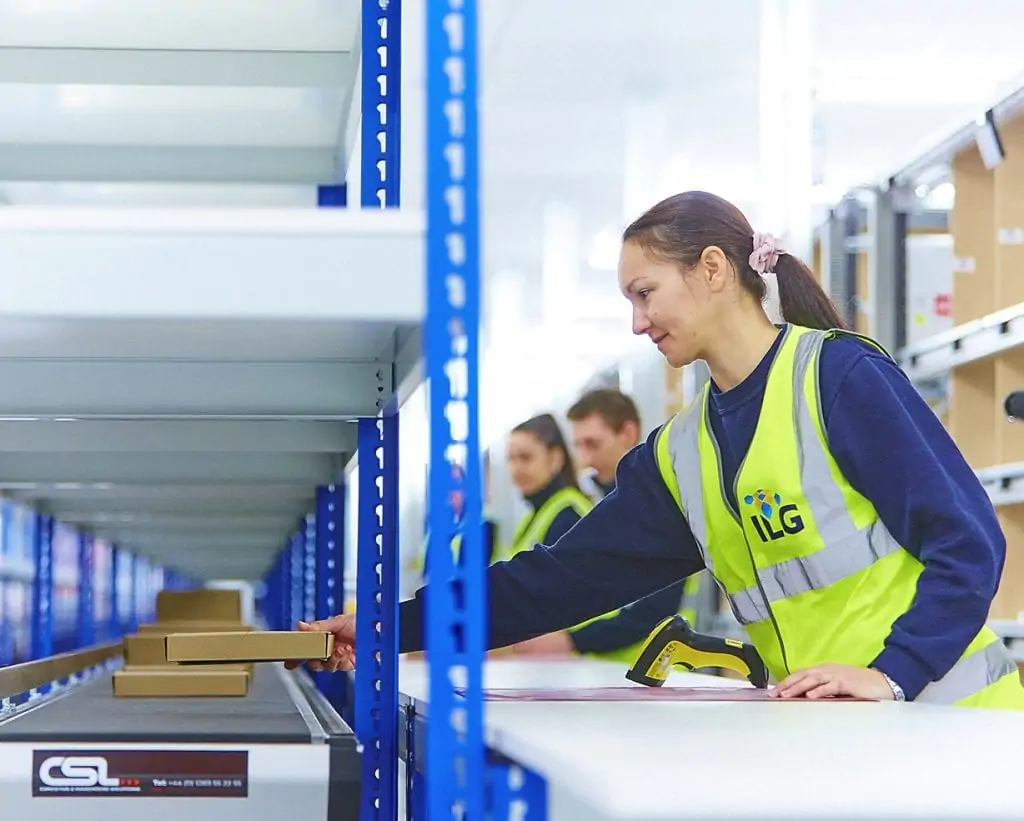
Seven years after the Brexit referendum, UK businesses are still getting to grips with the changes that have come into force. Along with the pandemic, the fuel crisis and war in Ukraine, it has been a complex and uncertain time, but recent steps forward, such as a new agreement on Northern Ireland, hint at calmer days ahead.
In this article we summarise what has happened as a result of Brexit in terms of trade, investment and labour, how that has impacted on European fulfilment and logistics, and how we are helping our clients to navigate safely to their chosen destination.
The Road to 2021
23 June 2016: The UK votes to leave the EU by a 4% majority. Prime Minister David Cameron resigns and is replaced by Theresa May.
24 May 2019: May resigns after repeatedly failing to win sufficient support for her proposed ‘backstop’ agreement, which would have meant treating Northern Ireland as part of the EU customs territory and single market for goods. Two months later May is replaced by Boris Johnson.
31 January 2020: The UK leaves the EU without a deal, but with the leeway of an 11 month transition period in which to strike one.
24 December 2020: With time running out, negotiators avert the dreaded ‘no deal’ scenario, striking an agreement that includes the creation of a customs border in the Irish Sea. This element of the deal is highly controversial and strongly opposed by Northern Ireland’s Democratic Unionist Party.
31 December 2020: The transition period expires and the terms of the new deal come into force on New Year’s Day.
Since leaving the EU, relations have been frosty, due to on-going disputes over terms within the agreement. The common cause of war in Ukraine has brought some unity between the UK and EU, but for UK businesses it has been a difficult time, with trade, investments and the availability of labour all taking a hit.
How Has Brexit Affected UK Trade?
As we predicted in our 2020 Brexit Guide, the new border controls enforced as a result of Brexit caused considerable delays in moving goods between the UK and EU. The volume of customs-export declarations that businesses had to fill in more than tripled, while import declarations increased by 50 per cent. The cost of this has had a knock-on effect on consumer prices, which in turn has impacted on trade.
The indications are that this has had a significant detrimental effect on UK businesses trading with companies in the EU. The UK Government’s own analysis forecasts that long-run productivity will fall by 4% due to the new trading relationship.
Other reports have shown that imports and exports between the UK and the EU have fallen steeply , as many companies have decided to stop trading across the English Channel altogether because of the cost and administration involved. Various studies on the immediate fallout of Brexit showed a fall in imports from the EU of between 14% and 25% and a 2022 report from the Economic & Social Research Institute showed a 20% reduction in trade from the EU to UK relative to if Brexit had not occurred. The same report showed exports from the UK to EU down by 16%. According to the British Chamber of Commerce, more than 75% of British companies feel that Brexit has not delivered on its promises.
The Organisation for Economic Co-operation and Development (OECD) reported last autumn that the UK economy had shrunk by 0.4% since the end of 2019, just before COVID-19 broke out. By comparison, the economies of United States, Canada, Italy, France, Germany and Japan have all grown from pre-pandemic levels.
Fall in Trade Openness
The OECD also found that the UK’s trade openness – the measure of trade relative to GDP – is lagging behind the rest of the G7 countries. While more than 70 trade deals have been struck with non-EU countries, most of these simply replicate deals that were in place when Britain was in the EU. Exceptions to this are the new free trade agreements with Australia and New Zealand, signed in December 2021 and February 2022 respectively. These are expected to unlock £10.4 billion of additional trade, while opening up a gateway to the fast-growing Indo-Pacific region.
Another factor influencing import/export figures has been the movement of business activities from the UK to Europe in order to circumvent the red tape. For example, our own warehouses in Wroclaw, Poland, provide ILG customers with the facility to cut down on paperwork and other administrative burdens by keeping stock in the EU, where it can be swiftly despatched to European markets.
How Has Brexit Affected Investment?
If the UK’s trade figures are lagging behind the EU, investments in UK businesses have suffered even more. Ever since the 2016 referendum there has been widespread uncertainty in the UK economy, leaving business investment 31% down on the pre-2016 trend. By contrast, business investment in the EU is up 2% for the same period.
How much of this is down to Brexit is open to debate – and indeed there is much debate. Economist Dr Graham Gudgin says, “The pandemic massively distorted normal growth trends and performance, very likely to a much greater extent than any changes resulting from leaving the EU single market and customs union (and in any case there is no real way of disentangling the impacts).” The International Monetary Fund, on the other hand, is one voice that says Brexit, and particularly the uncertainty over the position of Northern Ireland, has deterred investment. And big business leaders like Richard Branson have admitted that the increased red tape is a deterrent to investing in the UK.
The effect of this fall in investment is a restraint on growth. Spending on factories, training, equipment and technology doesn’t happen without investment and so many businesses have been holding back on making the changes that would improve efficiency and productivity, lower prices and help to boost the economy.
How Has Brexit Affected the Labour Market?
One of the more predictable impacts of Brexit has been on the UK labour market. Companies have experienced shortages and instability, with logistics, retail and manufacturing being among the sectors hardest hit.
Whereas the free movement afforded by membership of the EU made it easy for European workers to come to the UK and work, the new immigration policy has made this much harder, impossible even in many cases, resulting in a shortfall in the workforce, consequently pushing up labour costs.
As Brexit came into force, European workers returned to their home countries in large numbers and have not been able to return. The Migration Advisory Committee described it as “a labour supply shock to the UK economy”. Two think tanks, the Centre for European Reform and UK in a Changing Europe, have estimated that, despite the record rise in net immigration to 606,000 in the 12 months to December 2022, reported by the ONS last month, there are 330,000 fewer workers in the UK as a result of Brexit.
UK immigration policy now has a points-based system designed to attract skilled workers and this has barred the way in for a significant proportion of the EU workforce who would previously have come to the UK to work in factories, warehouses, shops and transportation. Recently, the Government added a number of construction skills to its Shortage Occupation List – a list of jobs that it deems to be in short supply – in recognition of the severe impact the labour shortage was having on the construction industry. The list includes highly qualified roles such as engineers, scientists and principal musicians, but doesn’t include drivers, for example; the shortage of which has had a major impact on logistics.
Lord Wolfson, Chief Executive of Next and a Brexit supporter, is among notable business leaders who have called for the Government to relax its immigration policy to allow in more EU workers.
New Import Checks
The Government recently announced a proposal to reduce and simplify the additional checks on goods coming to the UK from the EU, which the EU has been pressing for as a legal requirement under the Brexit trade deal. Backed by more than £1bn in funding, the new Border Target Operating Model will involve fewer checks, less bureaucracy and more digitisation to “minimise trader burdens and maintain border security while remaining aligned with international standards”.
A final version of the Model is due to be published in June, following feedback from stakeholders, with a timetable to fully implement it by 2027. While much of the proposal is focused on the movement of food products, changes affecting UK importers more generally will include:
- A pilot trusted traders scheme to allow frequent importers to avoid trade checks
- Safety and security data requirements reduced from 37 mandatory fields to 24 – with 13 more optional
- Introduction of the UK Single Trade Window – a single digital gateway for importers and exporters to provide the data needed to trade and apply for licences, submit safety and security data and authorisations for trusted trader schemes
- Removing duplication by improving the use of data
- Checks to take place away from ports at Border Control Posts to prevent traffic build-ups
A Solution for Northern Ireland?
In April 2023 the Windsor Framework was adopted to replace the controversial Northern Ireland Protocol, under which goods travelling to Northern Ireland from England, Scotland and Wales were subject to EU inspection and document checks at Northern Ireland’s ports. This applied even to goods that were staying within Northern Ireland, rather than crossing the border into EU member the Irish Republic.
The new framework eases the tension over this particular arrangement by introducing red and green lanes; red for goods which may go on to the EU, green for goods remaining in Northern Ireland. Products going through the green lane would no longer need to be submitted to checks or additional paperwork.
While much of the complication around Northern Ireland’s role within the Brexit deal revolves around food products, the easing of checks will benefit all sectors, streamlining logistics and relieving Northern Ireland from its obligation to follow certain EU rules, such as on VAT. Furthermore, none of the additional checks or controls in the new Border Target Operating Model will apply to imports into Northern Ireland from the EU.
Enabling Your European Fulfilment
Brexit is only one factor affecting the UK economy, along with global influences like inflation, supply chain disruption and the pandemic, so it’s impossible to calculate its precise impact on UK businesses. What we do know is that the UK economy has performed poorly since Brexit and businesses continue to report difficulties in trading between the UK and EU.
That includes a lot of ILG customers, who we have been working with to pick through the bureaucracy and establish smooth lanes of delivery to keep their businesses thriving. If you need guidance on navigating the post-Brexit logistics and fulfilment landscape, our account managers would be very happy to share their experience.
For more information about our UK or EU fulfilment and delivery services, get in touch today.
Sources:
- https://www.bbc.co.uk/news/explainers-53724381
- https://www.bbc.co.uk/news/business-64450882
- https://www.institute.global/insights/geopolitics-and-security/three-years-brexit-casts-long-shadow-over-uk-economy
- https://www.instituteforgovernment.org.uk/sites/default/files/publications/implementing-brexit-northern-ireland-protocol.pdf
- https://www.euronews.com/my-europe/2022/12/29/brexit-draft-deal-first-of-many-hurdles-to-a-smooth-exit
- https://news.sky.com/story/post-brexit-checks-on-goods-from-eu-into-uk-announced-after-delay-12850340
Contact Us
More insights >
Five Steps To Switching Your Fulfilment Provider
For every business that relies on a fulfilment/3PL partner to get products into the hands of their customers, working with the right provider is a must.
When to Outsource Your Fulfilment, Why it Makes Sense, and Who to Trust
Signs that it might be time to outsource The most common reasons for choosing to outsource your fulfilment…

